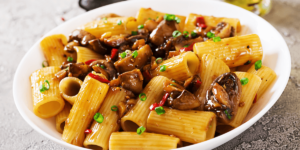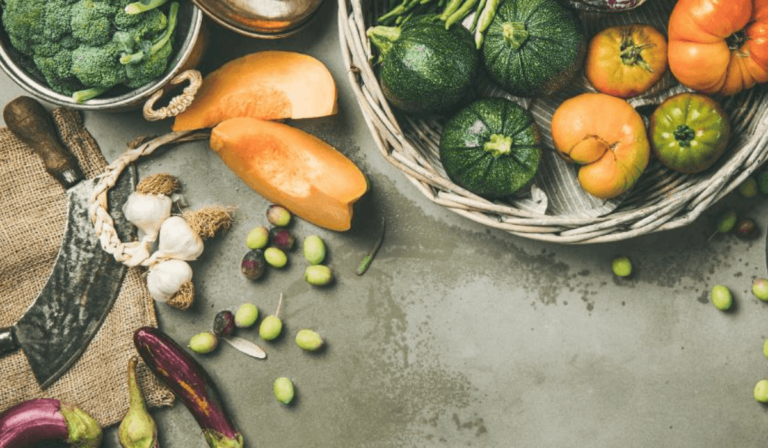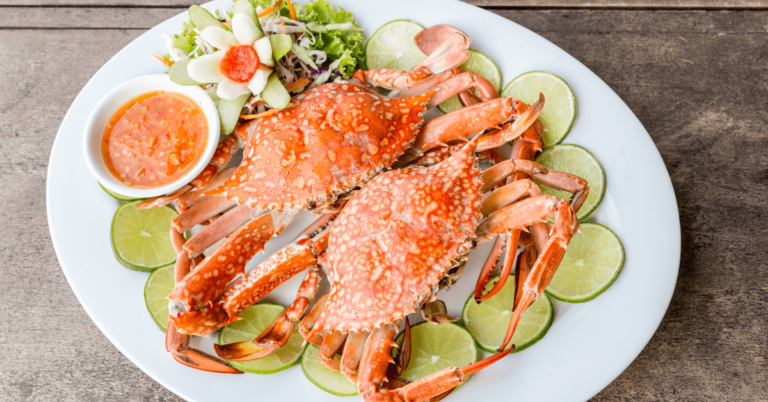Part 1: Introduction to Vegetarian Diet and Pasta
Vegetarian Diet
Ever wondered what Vegetarian Diet is all about? It’s a lifestyle where folks skip meat for health, environment, ethics, or religion. But, can vegetarians enjoy pasta? You bet! Pasta, mostly made from plants, is a vegetarian favorite.
The Basics of Pasta: Ingredients and Varieties
Pasta’s pretty simple – just water, flour, and sometimes eggs. But for strict vegetarians or vegans, there’s eggless pasta too. It comes in all shapes and sizes, like spaghetti and fusilli, each adding its own twist to dishes.
The Intersection of Vegetarian Diet and Pasta Consumption
How does pasta fit into a vegetarian diet? Easy! It’s a versatile base for loads of vegetarian dishes. Tossed in tomato sauce or with roasted veggies, pasta can be a star in nutritious, satisfying vegetarian meals. And it’s not just carbs – whole wheat and gluten-free options pack extra nutrition, great for health-minded vegetarians.
Next up, we’ll explore the nutritional side of pasta in a vegetarian diet. Stick around for more on pasta and vegetarianism!

Part 2: Nutritional Aspects of Pasta for Vegetarian Diet
Nutritional Value of Pasta
Pasta, a simple yet versatile dish, isn’t just about taste; it’s also packed with nutritional benefits. Did you know that regular pasta is a good source of energy? It’s primarily made of carbohydrates, which are essential for fueling our bodies and brains. But that’s not all – pasta also contains protein, fiber, and various vitamins and minerals, making it a well-rounded choice for vegetarians.
Protein Content in Different Types of Pasta
Now, let’s talk protein. As vegetarians, finding protein sources is crucial, and pasta can contribute to this. Whole grain pasta, for instance, offers more protein than regular pasta. And for those who prefer a gluten-free diet, options like lentil or chickpea pasta are not only delicious but also high in protein. Isn’t it great to have such tasty and nutritious options?
Vitamins and Minerals in Pasta
Pasta also comes with its share of vitamins and minerals. For instance, it’s a source of B-vitamins, essential for energy metabolism. Plus, whole grain pastas are rich in iron, magnesium, and selenium. These nutrients play vital roles in our body, from supporting immune function to bone health.
Carbohydrates and Dietary Fiber in Pasta
Carbs often get a bad rap, but they’re important, especially for vegetarians. Pasta provides complex carbohydrates, which are key for sustained energy. And if you’re looking for more fiber, whole grain pasta is your friend. Fiber is not only good for digestion but also helps in maintaining a healthy weight.
In the next part, we’ll explore the types of pasta suitable for vegetarians and how to make the best choices for your diet. Stay tuned for more pasta insights!
Part 3: Types of Pasta Suitable for Vegetarian Diet
Eggless Pasta Varieties
For vegetarians, especially those who avoid eggs, the pasta aisle can be a treasure trove. Eggless pasta, made from just water and flour, is widely available and suits all vegetarian diets. From the classic penne to the delightful farfalle, these varieties ensure that vegetarians don’t miss out on any pasta adventures.
Whole Wheat and Gluten-Free Options
Health-conscious vegetarians, rejoice! Whole wheat pasta is not only richer in nutrients like fiber and protein but also offers a nuttier flavor and a heartier texture. And for those avoiding gluten, there’s a world of options: rice, quinoa, and even lentil pasta. These gluten-free choices are not just about avoiding gluten; they’re about adding variety and nutrition to your diet.
Homemade Pasta Recipes for Vegetarian Diet
Ever thought of making pasta at home? It’s a fun and rewarding experience! Homemade pasta gives you control over the ingredients, allowing you to create eggless or whole grain versions. Plus, it’s a chance to experiment with flavors – think spinach-infused or tomato-based pasta for an extra veggie boost.
In the next part, we’ll debunk some common concerns and misconceptions about pasta in a vegetarian diet. Stay tuned for some myth-busting and eye-opening facts!
Part 4: Common Concerns and Misconceptions
Debunking Myths About Pasta and Vegetarian Diet
When it comes to pasta and vegetarian diets, there are quite a few myths floating around. One common misconception is that pasta is just empty carbs. However, as we’ve seen, pasta can be a source of valuable nutrients like protein, fiber, and vitamins, especially when opting for whole grain or fortified varieties. Another myth is that all pasta is high in calories. In reality, portion control and what you pair with your pasta (think veggie-heavy sauces) play a significant role in the nutritional value of a meal.
Addressing Gluten Concerns in Pasta
Gluten in pasta is often a concern, especially for those with sensitivities or celiac disease. But, fear not! The rise of gluten-free pasta made from rice, corn, quinoa, or legumes offers delicious alternatives. These not only cater to gluten-free needs but also add variety to the vegetarian diet.
The Glycemic Index of Pasta and Its Impact
The glycemic index (GI) of pasta is another topic of interest. Regular pasta has a surprisingly low GI, meaning it doesn’t cause rapid spikes in blood sugar levels. This makes it a suitable option even for those managing their blood sugar. Whole grain pastas have an even lower GI, making them an excellent choice for sustained energy throughout the day.
In the next part, we’ll delve into how to incorporate pasta into a vegetarian diet in a balanced and delicious way. Get ready for some tasty tips and creative recipe ideas!
Part 5: Incorporating Pasta into a Vegetarian Diet
Balancing a Vegetarian Diet with Pasta
Mixing pasta with veggies and legumes is key for a balanced vegetarian meal. Think pasta with spinach, tomatoes, and olives, topped with a bit of feta. It’s a tasty mix of carbs, protein, and nutrients.
Creative Vegetarian Diet Pasta Recipes
Pasta gets exciting when you’re creative. How about creamy avocado pasta, spicy veggie arrabbiata, or pumpkin and sage penne? Play with sauces, spices, and veggies to make each pasta dish unique and delicious.
Pairing Pasta with Nutrient-Rich Vegetables and Legumes
Boost your pasta with beans, lentils, or chickpeas for extra protein and flavor. Add veggies like broccoli, bell peppers, or zucchini for vitamins and antioxidants. This way, your pasta is not just tasty but also packed with nutrition.
Next up, we’ll tackle some common questions about pasta in a vegetarian diet. Get ready for handy tips and insights!
Part 6: FAQs on Pasta in a Vegetarian Diet
Can Vegetarians Eat Cheese-Filled Pasta?
Absolutely! Vegetarians can enjoy cheese-filled pasta, but it’s important to check the type of cheese used. Some cheeses contain rennet (an animal-derived enzyme), so look for options labeled vegetarian-friendly.
Is Pasta Beneficial for Vegetarian Athletes?
Yes, pasta is a great food for vegetarian athletes. It’s a fantastic source of carbs for energy. Pairing it with protein-rich foods like lentils or cheese makes it an ideal meal for muscle recovery and energy replenishment.
How to Choose Vegetarian-Friendly Pasta Sauces?
When picking pasta sauces, vegetarians should watch out for hidden meat or fish ingredients. Tomato-based sauces, pesto (without Parmesan containing rennet), and creamy avocado sauces are great vegetarian choices.
Tips for Cooking Pasta in a Vegetarian Diet
For a nutritious meal, cook pasta al dente (just right) to keep a lower glycemic index. Mix in plenty of veggies for fiber and nutrients, and consider protein sources like beans or tofu to make it a well-rounded meal.
In the next part, we’ll wrap up with a summary and final thoughts on enjoying pasta in a vegetarian diet. Stay tuned for the conclusion!
Part 7: Conclusion
Summarizing the Role of Pasta in a Vegetarian Diet
Pasta, a versatile and beloved dish, fits beautifully into a vegetarian lifestyle. It’s not just a comfort food; it’s a canvas for a variety of nutritious ingredients. From whole grain options packed with fiber to protein-rich legume-based pastas, there’s something for every vegetarian. By pairing pasta with a rainbow of vegetables, legumes, and vegetarian-friendly sauces, you can create meals that are as nutritious as they are delicious.
Final Thoughts and Recommendations
Embracing pasta in a vegetarian diet is about balance, creativity, and nutrition. Whether you’re a long-time vegetarian or just exploring meat-free options, pasta offers endless possibilities. Remember to check labels for vegetarian-friendly ingredients, especially in pre-made products. And most importantly, have fun in the kitchen experimenting with different pasta types and flavors. Pasta is not just a meal; it’s an experience – one that perfectly complements the vegetarian way of life.
And there you have it – a comprehensive guide to enjoying pasta in a vegetarian diet. From its nutritional benefits to creative recipe ideas, pasta is a fantastic addition to any vegetarian’s meal plan. Bon appétit!






